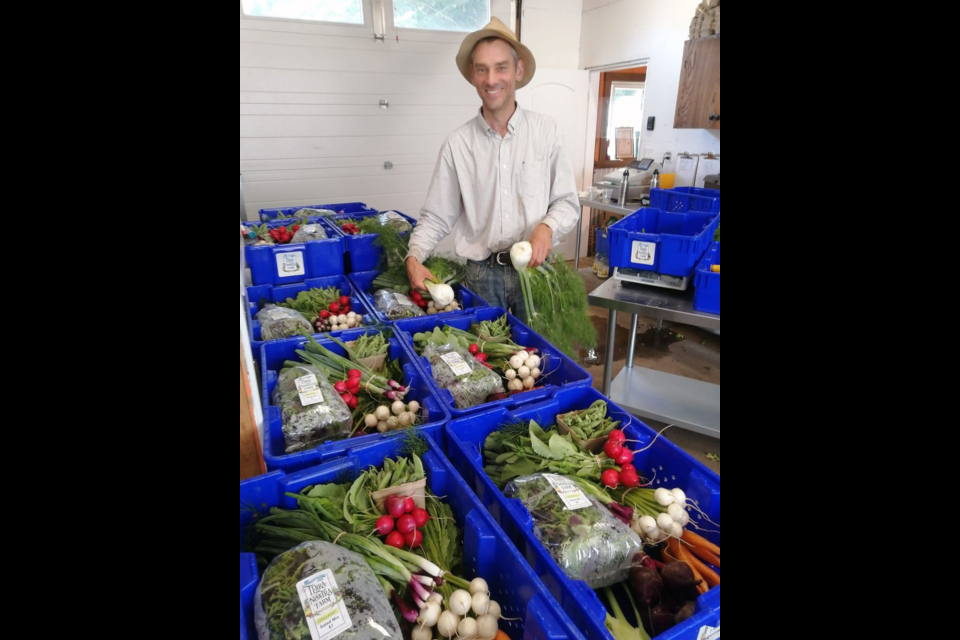This story and interview with Aaron Mazurek, about how to eat well during the winter months, was originally published in February 2024.
Around 50 local food growers in the qathet region produce honey, chicken and lamb, vegetables, cured sausage, fermented foods and even fruits such as kiwis.
Many started off as small growing projects that eventually grew into providing folks weekly, community supported agriculture (CSA) boxes and/or selling at local markets.
Terra Nostra Farm has been around for nine growing seasons and recently announced how much food it produced last year. The farm indicated that 40,000 pounds of vegetables were sold in the last growing year, including carrots, salad greens, bell peppers, tomatoes, onions, beans, salad, turnips and beets.
The announcement was made in order to draw attention to the success of locally grown produce. The farm also donated thousands of dollars worth of vegetables to Powell River Action Centre Food Bank last year.
"I thought people might find it interesting to know how much food we grew, so I added it all up," said Aaron Mazurek, owner and operator of Terra Nostra Farm. "We grow mainly vegetables and have two acres in production."
Farm boxes for families
Peak production time at the farm is from May to December and about 80 families receive a weekly CSA box during that time.
The farm stand is also open during those months and sometimes holds special events such as a u-pick, if there is an overabundance of produce, such as carrots, like there was last year.
The farm is situated on 14 acres of land beside Myrtle Creek just south of Powell River and is considered a regenerative farm and certified organic. Many folks are familiar with the label organic but not necessarily regenerative.
Regenerative farming
"Regenerative agriculture is a system of farming principles and practices that seeks to rehabilitate and enhance the entire ecosystem of the farm by placing a heavy emphasis on soil health with attention also paid to water management and fertilizer use," according to theclimaterealityproject.org.
In other words: "It is a method of farming that improves the resources it uses, rather than destroying or depleting them," according to the Rodale Institute.
Terra Nostra also has a large greenhouse where a mix of vegetables are grown.
"Farming is nothing but challenges and problem solving," said Mazurek. "There are hundreds of good reasons to support local organic farmers."
Healthy, sustainable and community based
Mazurek emphasized that supporting local/and or organic farms is a great choice for a healthy diet, reduces food miles and food waste, supports the local economy and allows residents to see where their food is grown, and how.
Winter is a tough time to find and/or grow vegetables in BC's west coast climate, but not impossible.
How to eat nutritious foods in winter
"If you want to eat well and eat locally in the winter, it takes a lot of planning and a shift to a seasonal diet," said Mazurek. "For example, we eat a lot of coleslaw in the winter when there is no lettuce but lots of cabbage and carrots in the root cellar."
When there is an abundance of food in the summer, that's when Mazurek and family will start freezing and canning what they grew to use in the winter. He suggests starting with simple dishes for those less experienced.
"Start small. Making a favourite type of salsa is often a great place to start, either fresh or canned," said Mazurek."If you have a garden, plant those things which you like the most and use a lot of. If you can stagger your planting dates so that everything matures at different times, that's ideal."
As for trying new things, Mazurek says, "we are going to try growing okra [next season]."
Join the Peak’s email list for the top headlines right in your inbox Monday to Friday.




